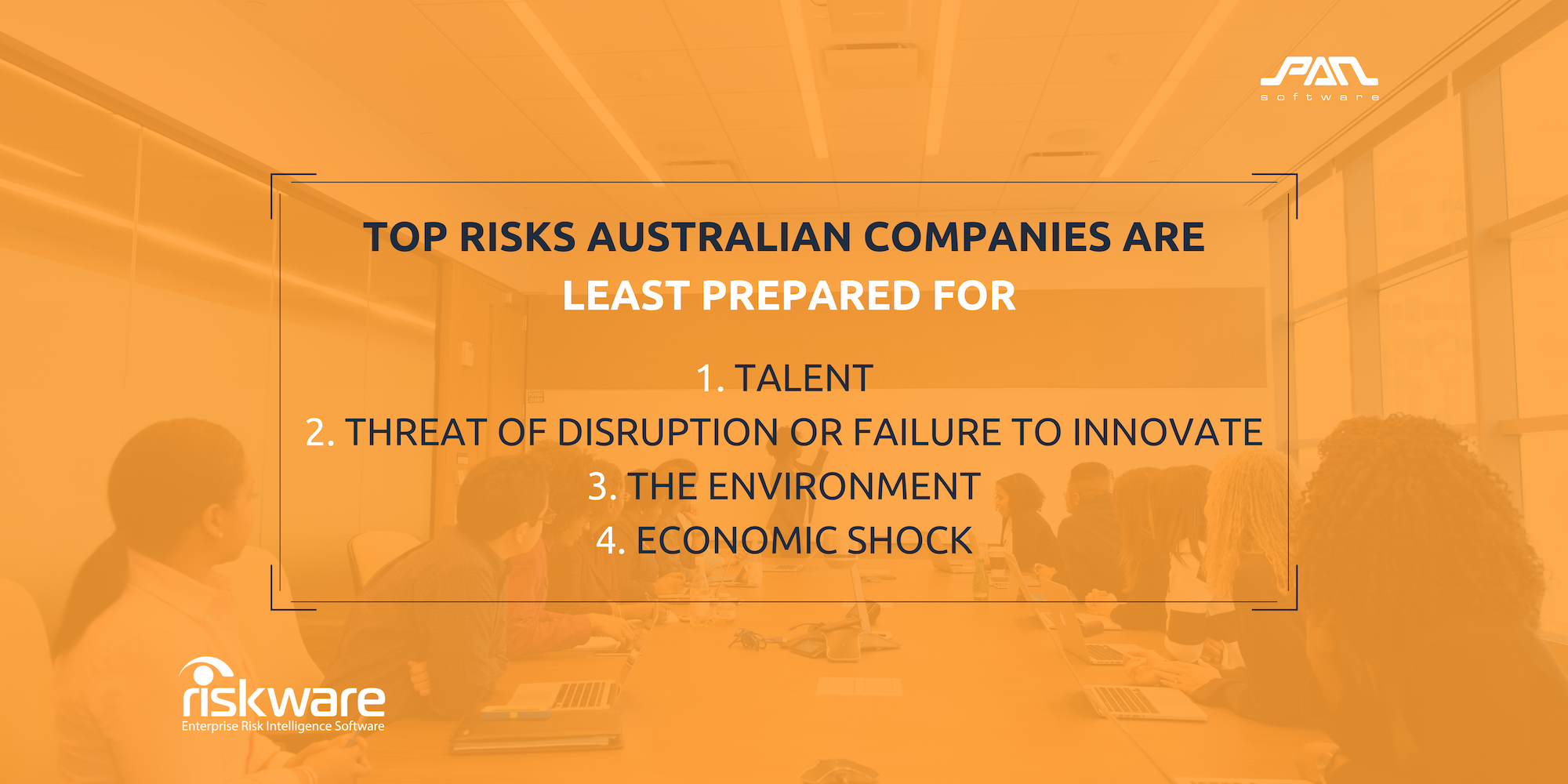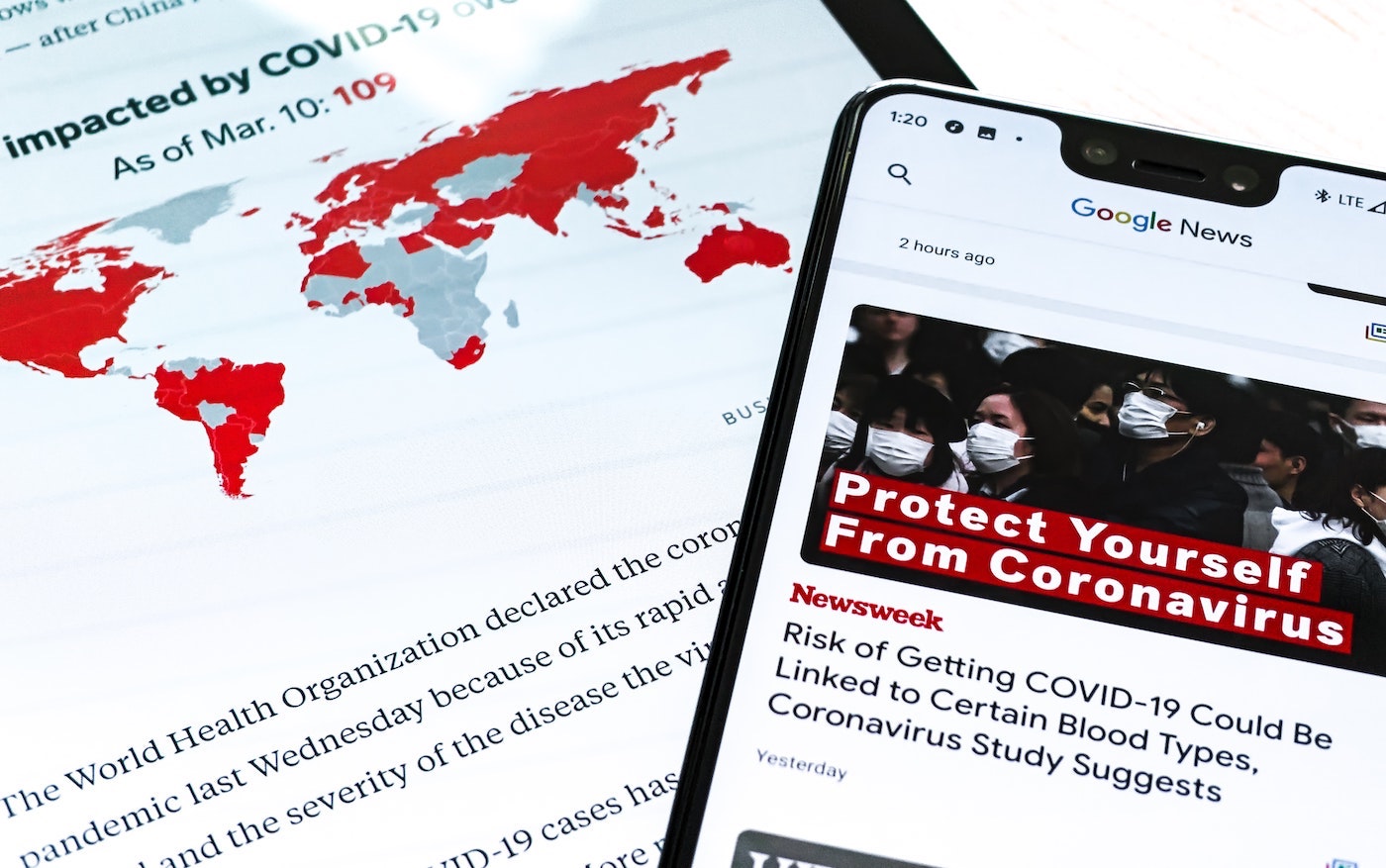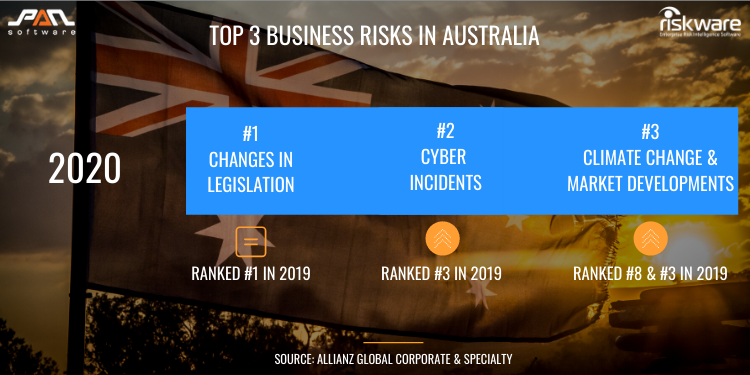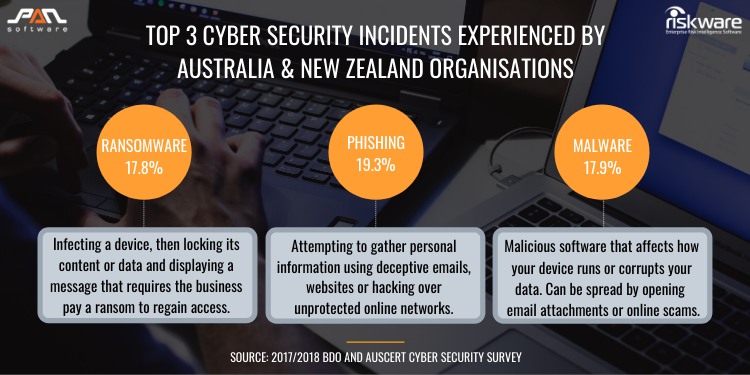We are facing lots of uncertainty at the moment. We don't know when there's going to be a vaccine for COVID-19, we don't know when we'll be able to travel freely or what 'normal' will look like after the dust settles. Dealing with this uncertainty is challenging, which is why it's important to focus on what we can control and tools that can help. Taking care of your staff who are at risk of experiencing adverse effects from their work, known as health surveillance, is one such practice.
How to Address Key Risk Issues Concerning Australian Companies in 2020
The Governance Institute of Australia recently released its Risk Management Survey Report 2020, which collected responses from nearly 400 governance and risk professionals and senior executives across Australia, and identified top pressure points now and in the future. In an unprecedented year with the bushfires and the coronavirus pandemic, the report found that, understandably, more attention is being placed on risk. This has inevitably led, however, to the uncovering of gaps and issues in how organisations are managing said risks that need to be improved on moving forward.
It's not being dramatic to say that COVID-19 has consumed both our personal and professional lives. We've been thrust into a world of disruption without any real sense of how long it will take for things to get back to normal and furthermore, what normal will look like. Even for companies that had their business continuity plans developed, a pandemic like COVID-19 was not something many saw coming let alone prioritised protecting themselves from.
Trends show that risks faced by Australian businesses are rapidly changing and there are new ones to worry about every year. Therefore, the best course of action would be to annually keep aware of and prepare for the biggest risks faced by Australian businesses. To give you some perspective, cyber incidents, which was ranked as the 15th biggest risk for businesses just seven years ago, is now the number one business risk!
Most organisations today have a digital presence and use software to facilitate business operations. While this offers numerous benefits like the ability to work and access data remotely, handle transactions more efficiently and even cater better to customers' preferences, it also makes organisations more vulnerable to cyber crime. Regardless of the size of your company, cyber crime is a real threat. In addition to financial loss, cyber attacks can have severe repercussions for brands' reputations and productivity.
Subscribe
Categories
- Risk Management (23)
- Enterprise Risk Management (18)
- Health & Safety (15)
- Business Continuity (14)
- Media Release (7)
- RiskWare (7)
- Compliance (5)
- Environmental Risk (3)
- Incident Management (3)
- Events (2)
- Artificial Intelligence (1)
- Case Studies (1)
- Corporate Governance (1)
- Government (1)
- Social Movement (1)





Leave a comment